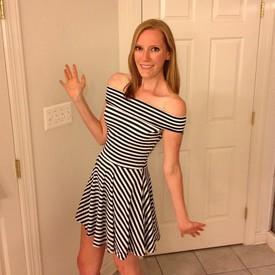Massive Calorie Burns!!
Replies
-
200Lbs In weight 47yr old so I'm working hard & the HR Is set to my exact weight, height, age etc
It recorded :
Run 472, not jogging, running at pace
Probably close given the weight, normal rule of thumb for running is about 100 cals per mile, but accounting for some inefficiency and weight it's probably only a little high.Spin 681
The reason that this is probably high is that most HRMs are designed for steady state or smooth transitions of HR. The use of HR as a proxy for consumption depends on the assumptions built into the processing being adhered to. A spin class involves a number of transitions of HR, sometimes spiking and sometimes smooth. The level of error won't be huge, but it will be significant enough to misinform.Kettles 614
This is probably where the biggest error lies, as the transients of HR are significant and you go into the anaerobic range reasonably regularly in a class like this. The algorithm completely breaks down when you're in anaerobic activity.I'm already warmed up & my heart rate Is higher from the treadmill, so the calorie burn I would expect to be higher
at each of the next classes ..
This is a fairly common misunderstanding in the weight losing exerciser; HR does not drive calorie expenditure. If anything the elevated HR is a contributor to the errors in the figures from the subsequent sessions.If nothing else It's a great motivator
Get one ...
I have one, I use it to inform my training, as in I use it as a Heart Rate Monitor, so when I'm on a session I can tune my pace according to where my HR is sitting. As a result of training with it my pace is improving, and I can work out when to push a session harder, or ease back.
There is a lot of misinformation about the utility of HRMs in weight loss and performance improvement. They're a good tool for performance improvement, they're useful from a weight loss perspective, but they're very vulnerable to error as a result of using them inappropriately.0 -
Calories per mile depends on your weight---
best estimate: Weight in lbs * 0.62 * number of miles run.
an estimate of 100 calories per miles only works for you if you weigh 161 lbs. If you weigh more you will burn more.
In general, if you run faster it just means that you burn the calories faster.0 -
This is why I do the TDEE method and don't even bother tracking exercise calories. Also when I did use my HRM my burns were ridiculously low anyway. I just don't burn much even when I feel like I'm dying so it is super frustrating and I would wonder why I was even bothering. Who needs that stress? And everything is completely inaccurate anyway. Better to just do TDEE for me and not stress about it.0
-
MeanderingMam
Top reply, I enjoyed reading It, I agree with everything you say ...
I've lost 17lbs in last 5-6 weeks so something Is working 0
0 -
MFP does tend to overestimate burns. I have an HRM, that's the only thing I trust to give a decent estimate of calories burned when I work out. Honestly, the FitBit doesn't monitor heart rate, so it's really just a pedometer IMO.0
-
This is really a question, not a comment. Is it absolutely necessary to record exercise? Am I in danger of eating too little if I don't account for my exercise?? Does it really take 1200 calories a day just to nourish my organs???0
-
I know everybody says MFP overestimates calories burned, but are people really burning that much?? I'm set at sedentary on MFP and record all exercise throught FitBit. On a really good day I'll burn about 4-450 cals through rowing, walking briskly for about 2 hours and weight lifting. Some friends through who record through MFP are getting between 7-800 calories for going for a walk or cleaning the house! I know people will burn more if they are heavier but I'm no skinny minny at over 200lbs and it amazes me some of these massive burns. Sometimes I feel as though I'm not doing enough or are my counts just more accurate??
How do you record yours?
I let MFP decide what the calorie burns are, I don't really care what the burn is listed as because I don't eat back the exercise calories so it's just a number that I use to judge how well I did that day. I will say that when I go to the gym I don't screw around, when I'm on the elliptical I give it as close to 100% of what I have for every minute I'm on it. When my time on it is over I'm usually completely spent, gasping for breath and trying to figure out if I'm gonna stroke out or not! I have a lot of comments on my listed caloric burns but I just don't worry about what they are, it's all exercise and to me it's just progress, the only number I worry about is the one on the scale.0 -
No, it depends how you establish what your calorie consumption should be to maintain health and fitness whilst losing, or gaining, weight.Is it absolutely necessary to record exercise?Am I in danger of eating too little if I don't account for my exercise??
Potentially, depending on your goal calorie intake, the amount and intensity of exercise you do and how your macros are made up to account for the exercise.Does it really take 1200 calories a day just to nourish my organs???
1200 cals is at the bottom end of the various national recommendations for minimum intake. If you're expending energy in training and not compensating for that then you do risk a progressive degradation.
Your choice, lots of people don't replace the expended energy. Essentially if you're only burning a couple of hundred calories in a session then the various measurement errors may net off. If you're burning 1000 calories in a session then that makes up a fairly significant part of your day.0 -
I also noticed that the MFP calories burned are always way higher than my HRM. I swear by my Garmin HRM for all cardio activities. It usually takes me 2 hours (or close to it) of high intensity cardio to break into the 1,000's.
This. If you can maintain high intensity steady state cardio (spin, elliptical, jogging, swimming, arc trainer, stepper, rower), you should find it possible to break into the 1000s.
I try to hit the gym for a 630 am spin class every day. After, I try to sneak in 30mins of lifting on my way to the elliptical for a 10k. I wear an hrm, and depending on the spin instructor/class length, my calorie burns are (Gross numbers) from about 1100 - 1400 cals. Sooo, my workout is mostly steady state cardio, and usually in the 2 - 2.5 hour range....I weigh about 225lbs. My workout goal is to keep my avg gross cals burned at or over 10/min. If I do that, I know Im working hard...
MFP's estimates are ALWAYS higher than my HRM - the machines at the gym are usually inflated as well...HRM is the way to go, especially if you can wrap your head around the fact that there is no truly and fully accurate method of computing calories burned....0 -
Good call on StrongLifts, I'm starting on Saturday.
In that case I would say that 450cals is very low if that includes your 2 hour walk also? Do you have a HRM?
HRM monitor arrives today!!
I thought that may be the only way to definitively find out. And yes this also includes my 2 hour walk.
HRMs aren't very accurate for walking (they are better estimates for higher heart rates) and they are useless for lifting. They are useful for estimates when it's a moderate to high intensity steady state cardio activity such as running or cycling.
A descent rough estimation for your walks would be 80 - 120 calories per mile depending on your weight. Weight lifting won't give you high calorie burns. I estimate my 60 minute lifting sessions at around 200 calories.0 -
My heart rate monitor says I burn 150-250 calories walking 3.0 mph avg 1-1.5 miles in 20-30 mins. For longer walks, I burn 300-450 calories for 3-3.75 miles in 50 mins- 1 hr 15 mins.
Strength training burns almost nothing and cannot be logged with a HRM.
Many people massively overblow their calorie earnings. I don't understand logging cleaning, either. Yeah, you might be tired after and yeah, it's more than being sedentary, but are you getting your heart rate up and keeping it up? Nopeeee.0 -
\Dont forget the like 1800 calories burned for 3 hours of bowling!I know everybody says MFP overestimates calories burned, but are people really burning that much?? I'm set at sedentary on MFP and record all exercise throught FitBit. On a really good day I'll burn about 4-450 cals through rowing, walking briskly for about 2 hours and weight lifting. Some friends through who record through MFP are getting between 7-800 calories for going for a walk or cleaning the house! I know people will burn more if they are heavier but I'm no skinny minny at over 200lbs and it amazes me some of these massive burns. Sometimes I feel as though I'm not doing enough or are my counts just more accurate??
How do you record yours?0 -
I know everybody says MFP overestimates calories burned, but are people really burning that much?? I'm set at sedentary on MFP and record all exercise throught FitBit. On a really good day I'll burn about 4-450 cals through rowing, walking briskly for about 2 hours and weight lifting. Some friends through who record through MFP are getting between 7-800 calories for going for a walk or cleaning the house! I know people will burn more if they are heavier but I'm no skinny minny at over 200lbs and it amazes me some of these massive burns. Sometimes I feel as though I'm not doing enough or are my counts just more accurate??
How do you record yours?
Whenever I see someone burning 800 calories doing something - ESPECIALLY CLEANING - for an hour, I feel a little sorry for them. I feel like they are only hurting themselves by deluding themselves. I know a few people who will log that kind of calorie burn when they have a binge day to justify it to themselves. At the end of the day, their body knows they didn't actually burn 800 calories cleaning for an hour so why cheat yourself out of knowing what your body actually needs. Knowledge is power and when people log these unrealistic burns that simply did not happen, they are corrupting their data.0
This discussion has been closed.
Categories
- All Categories
- 1.4M Health, Wellness and Goals
- 398.5K Introduce Yourself
- 44.7K Getting Started
- 261K Health and Weight Loss
- 176.4K Food and Nutrition
- 47.7K Recipes
- 233K Fitness and Exercise
- 462 Sleep, Mindfulness and Overall Wellness
- 6.5K Goal: Maintaining Weight
- 8.7K Goal: Gaining Weight and Body Building
- 153.5K Motivation and Support
- 8.4K Challenges
- 1.4K Debate Club
- 96.5K Chit-Chat
- 2.6K Fun and Games
- 4.8K MyFitnessPal Information
- 18 News and Announcements
- 21 MyFitnessPal Academy
- 1.5K Feature Suggestions and Ideas
- 3.2K MyFitnessPal Tech Support Questions











